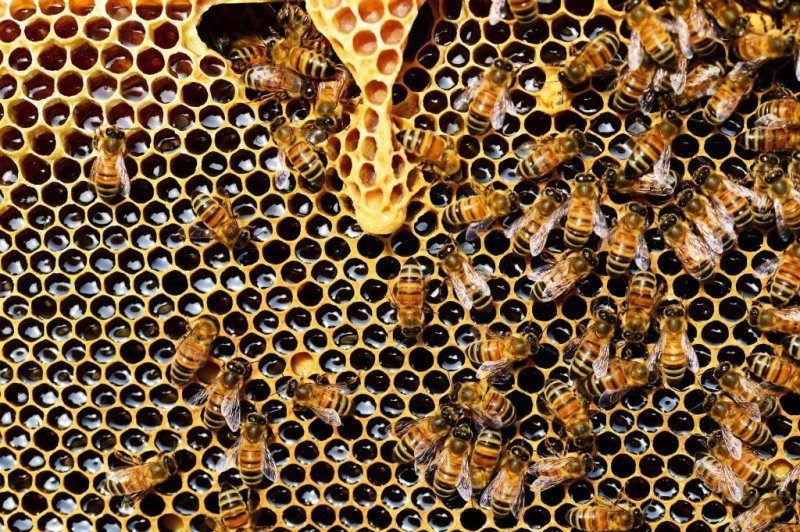Bees living on organic farms are healthier, produce more offspring and make more honey. Photo by CNRS/Public domain
June 26 (UPI) -- Honeybees and their pollination services are essential for crop production, but bee populations continue to decline all over the world.
New research suggests honeybee colonies might fare better if more farms practiced organic farming.
In regions featuring intensive agriculture, with of monoculture, commercial farms, honeybees tend to struggle during May and June, when cultivated rapeseed and sunflowers aren't in bloom.
Ecologists with the French National Center for Scientific Research, CNRS, found bees living on organic farms have better access to floral resources, including weeds, meadows and semi‐natural elements, between the blooms of rapeseed and sunflower.
As a result, bees on organic farms produced a 37 percent larger brood, 20 percent larger adult bee population and 53 percent more honey.
Dozens of previous studies have identified insecticides used on non-organic farms as one of the primary drivers of colony collapse. The latest study -- published this week in the Journal of Applied Ecology -- suggests organic farms don't just benefit bees by offering a safe haven from pesticides, but also by providing a wider variety of floral resources.
Previous studies have identified the importance of plant diversity to bee health.
"The implication is that organically cultivated fields exert unique effects on the bee population. The swell in brood, destined to yield new workers, may be the result of a wider diversity of pollen resources or of lower mortality from local application of pesticides," researchers wrote in a CNRS news release. "The surge in honey reserves may reflect availability of melliferous flowers in greater numbers -- and over a greater area, corresponding to the range covered by bees in their quest for resources."















